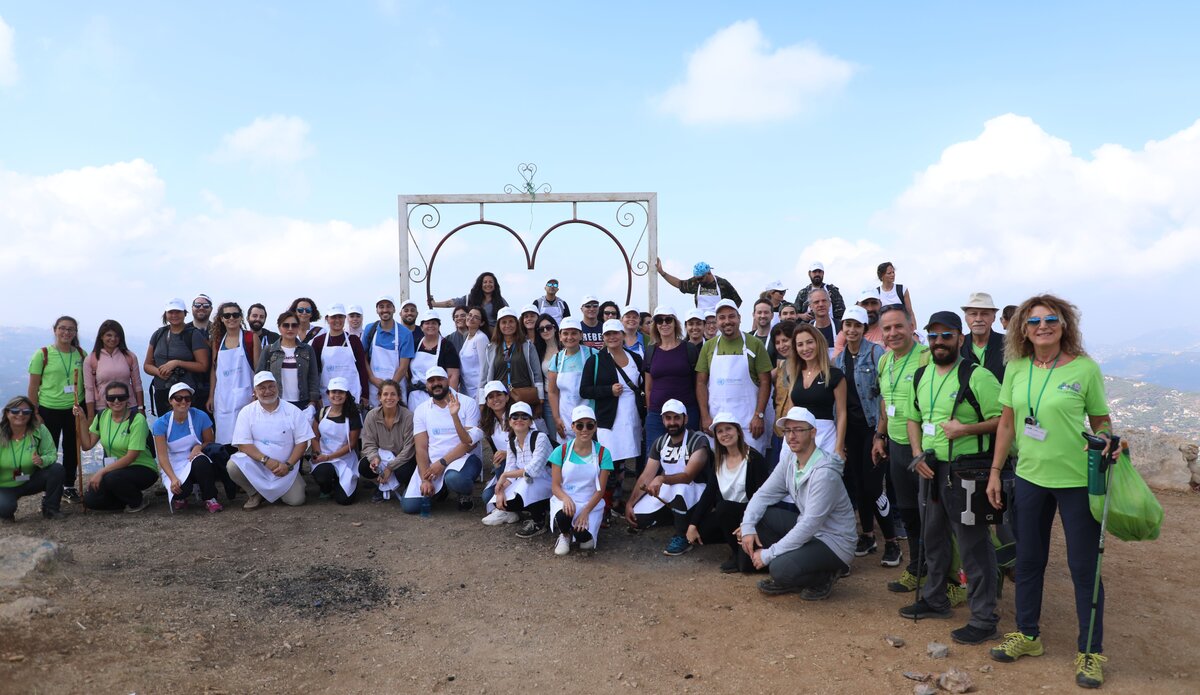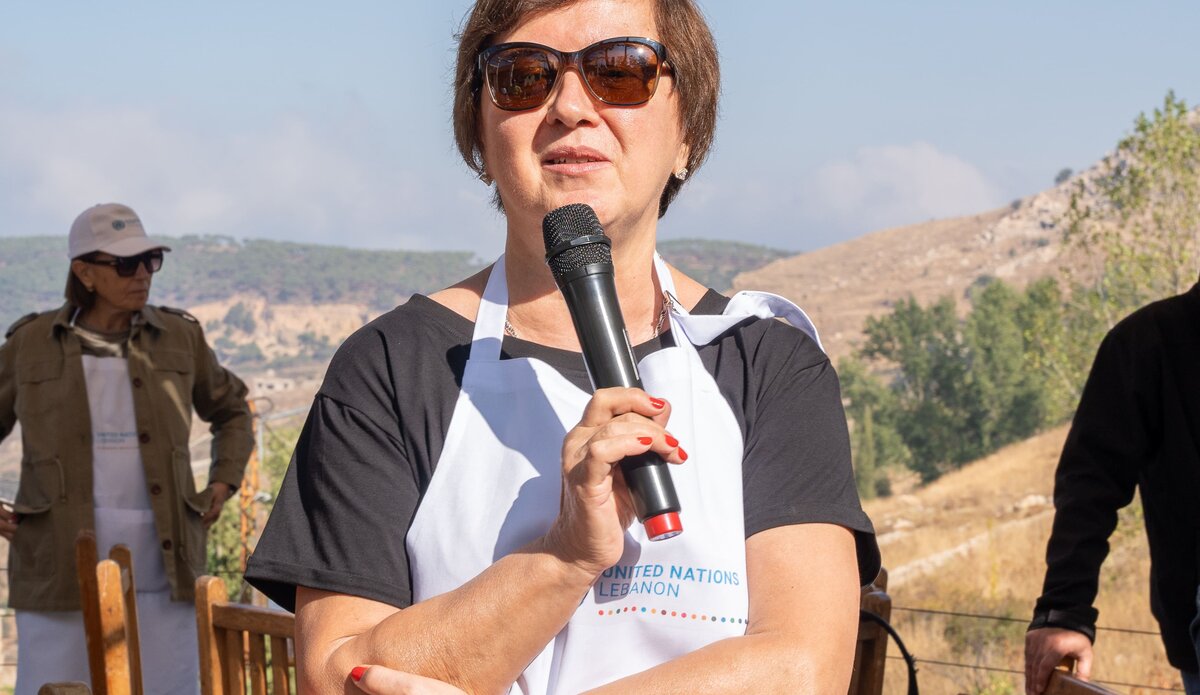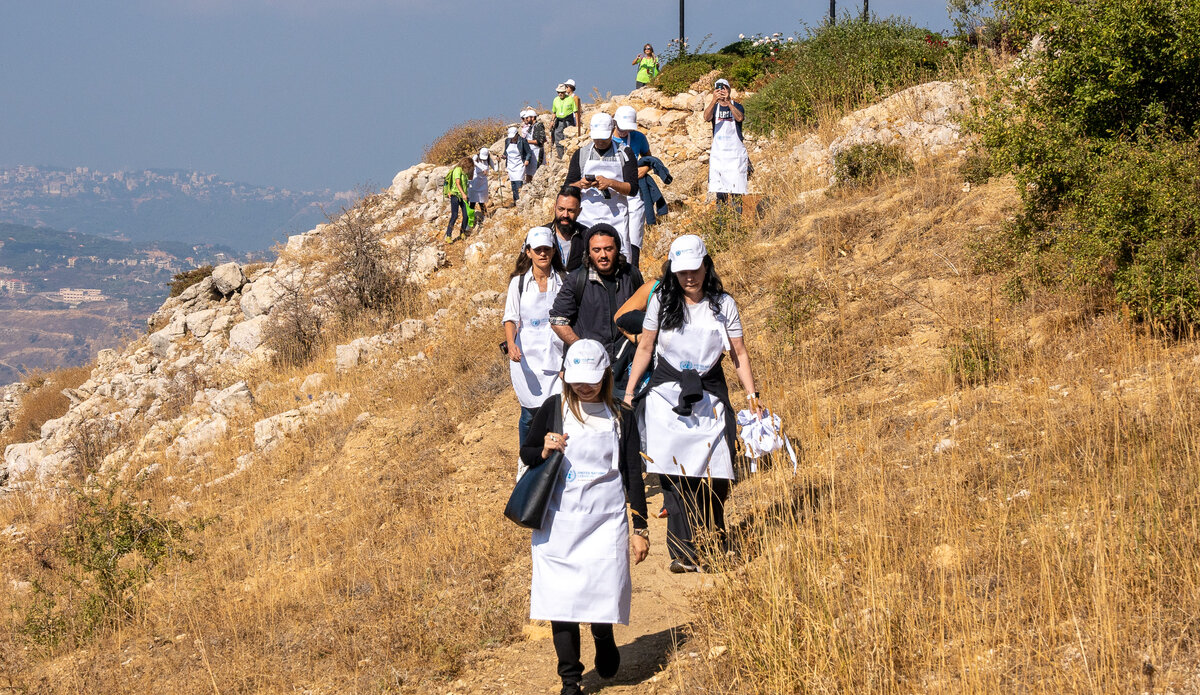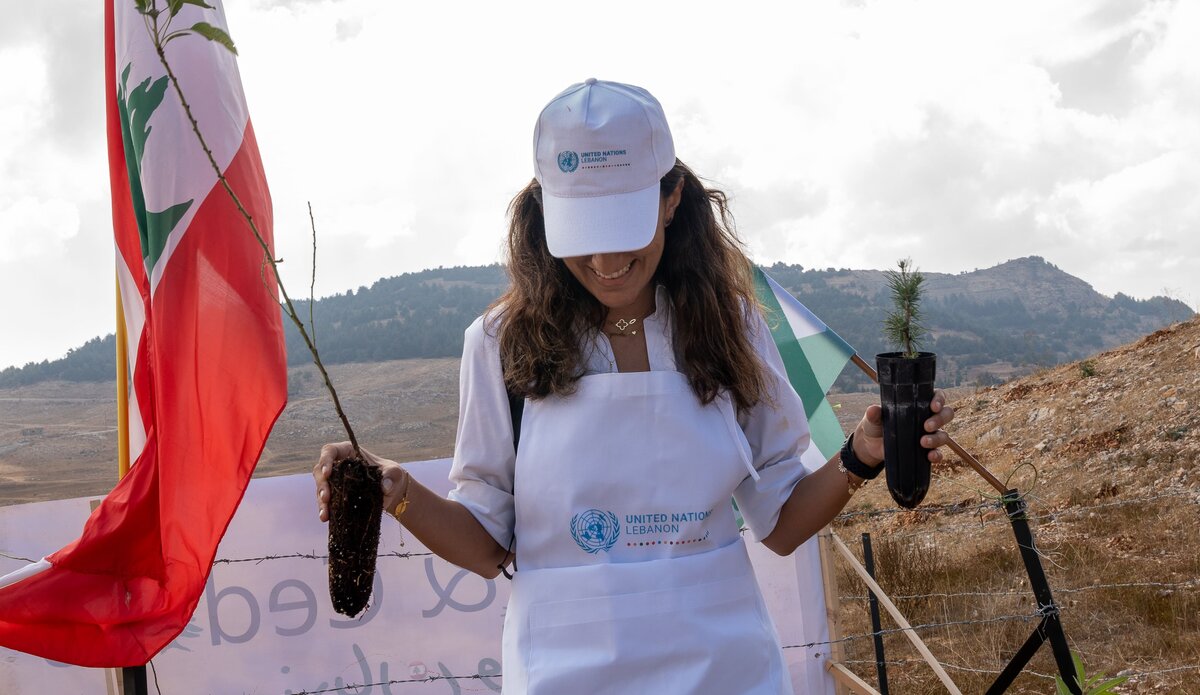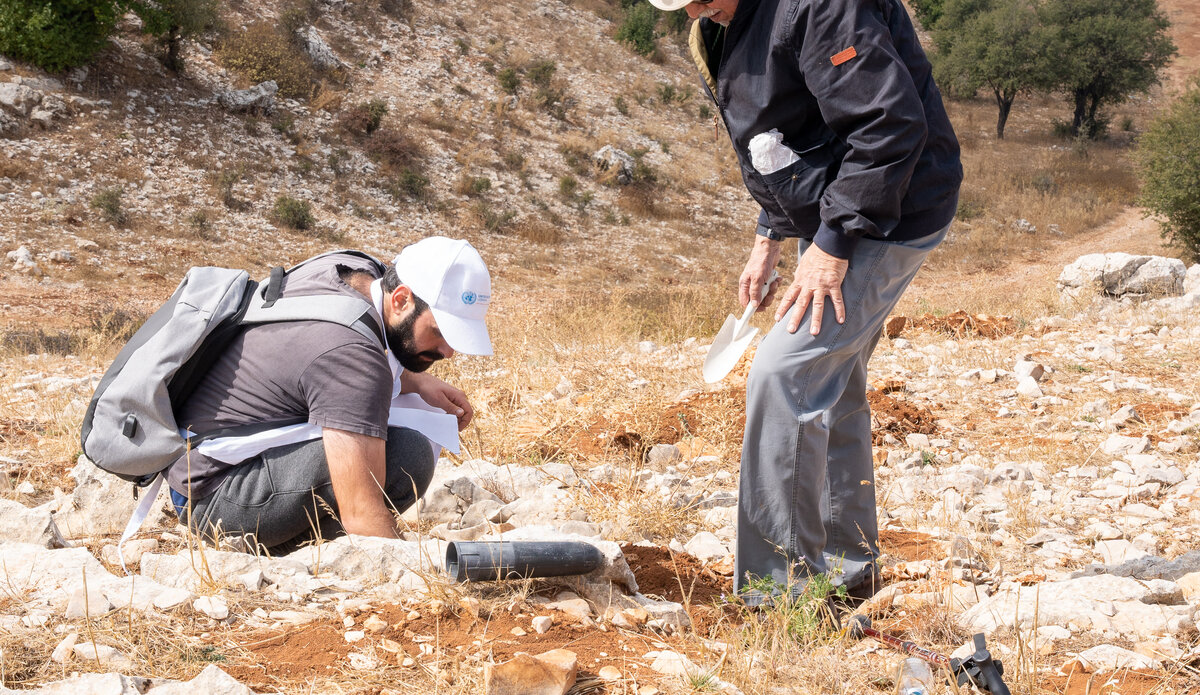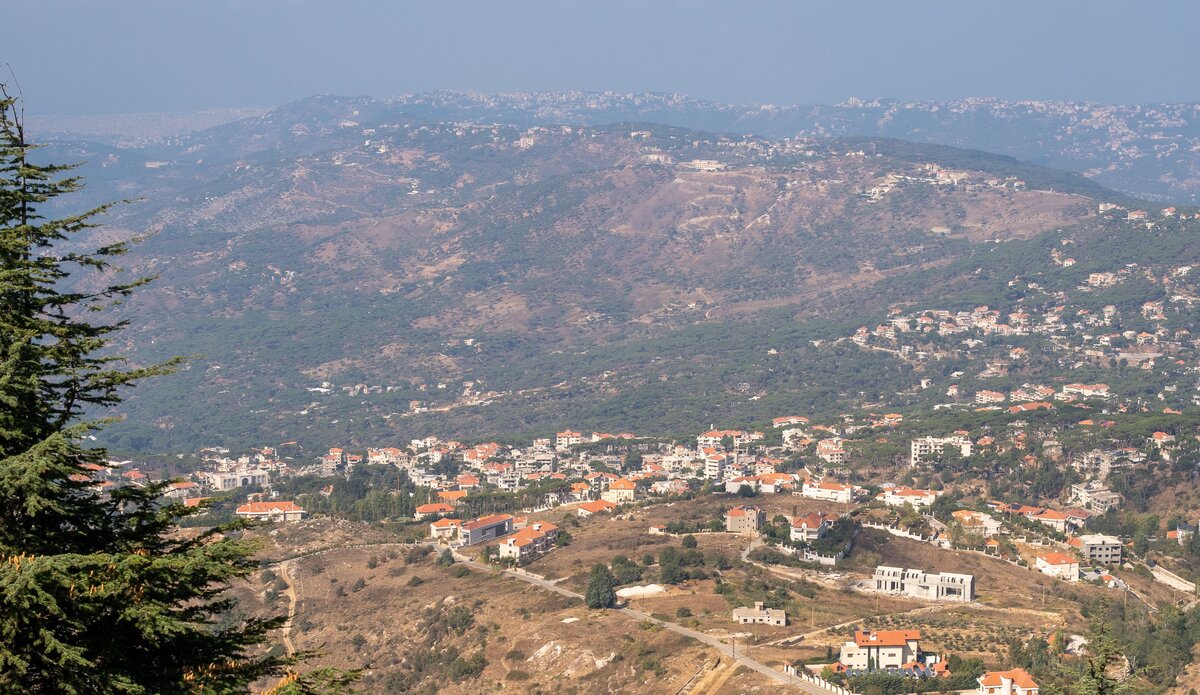UN Lebanon Marks 77th UN Day: Reforestation for Environmental Recovery
It was a sunny Friday morning when UN staff in Lebanon embarked on an environmental mission to plant 1000 locally sourced seedlings on the occasion of UN Day in one of the reforestation sites managed by the UN Food and Agriculture Organization (FAO) in Falougha-Baabda, East of Beirut.
Wearing their UN Lebanon-branded white aprons and caps, around 90 staff from 22 UN agencies hiked through the peripheries of Falougha villages, passing by “The First Lebanese Flag Podium” and the Cedars Forest. Their aim is to support Lebanon’s environmental recovery through a simple Greening activity that can help contribute to cleaner air and support local communities in their endeavors to stop the country’s environmental deterioration.
“We are living the daily struggles of the people of Lebanon and we recognize with sorrow the immense challenges that have crippled the country and reversed hard-won development gains,” said Acting UN Resident and Humanitarian Coordinator, Edouard Beigbeder. “Today, this field activity led by UN Staff, is sheer evidence of our commitment to ‘Greening’ Lebanon. Let’s continue to inspire positive change through such simple actions,” he asserted.
Reforestation As a Collective Effort
Guided by the “Oaks and Cedars” local NGO, each UN staff planted around two seedlings including Cedar, Oak, White Hawthorn, Almond, Grecian Juniper, Syrian Pear, contributing as such to planting 1000 trees.
Co-funded by UNIC Beirut and FAO Office in Lebanon, the planting activity contributed to finalizing FAO’s “Smart Adaptation of Forest Landscapes in Mountain Areas” (SALMA) project extending over 100,000 m2 in the Falougha’s forest area. “One person cannot reforest such a huge area, but a group of people can make a positive change,” said Marie Dominique Karam, Associate Human Rights Officer at OHCHR Middle East Regional Office.
UN Special Coordinator for Lebanon, Joanna Wronecka, who took part in the hike and planted several trees said, “The UN family’s celebration of UN day in Falougha through reforestation is an attempt towards conserving the environment in Lebanon, a country known for its climate and beautiful natural scenery. Our activity is part of our efforts to combat climate change which is a priority on our Agenda 2030 for a better future.”
Evoking Lebanese Natural Heritage
Most UN staff planted oaks and cedars, two of the most renowned forest plants in Lebanon that hold a patriotic connotation in the folkloric collective memory. “Hiking at the cedar forest, which is a tree that means a lot to us, was my favorite activity today,” said Hoda El-Turk, Public Information Officer at UNEP Regional Office for West Asia. “I’m happy that there are people and entities preserving these trees and bringing them to life.”
For his part, Mohammed Salih, Deputy Resident Representative at UNDP in Lebanon expressed his fervent desire to visit in a year the planted spot to see how far the planted trees have grown and to observe the impact of this One UN initiative on Falougha’s environment.
Bonding amid a breathtaking landscape
This recreational activity represented an opportunity for staff to shake off job formalities, bond together, and enjoy the beautiful landscape, particularly after three years of hard work amidst the myriad of challenges facing Lebanon.
“I think it was a great opportunity to meet my UN colleagues. Walking along the trail, we had the chance to talk about our joint work and we realized that many of us could work with each other more on reforestation, agriculture, livelihoods, and jobs for Lebanese and refugees,” said Peter Johan Rademaker, Deputy Regional Director & Director for Arab States at ILO Lebanon.
The day culminated in a fun gathering around a local and organic brunch, which included traditional Lebanese bites and drinks, followed by a group photo next to the “Secret Heart” at Lamartine Valley in Falougha.
“The UN Staff is one family despite the various missions and programmes we work on. Today was a great opportunity for us to meet up and to remember that we’re all here to support Lebanon,” said Bechara Maroun, Media and Communication Officer at UNESCO regional bureau.
 UN
UN
